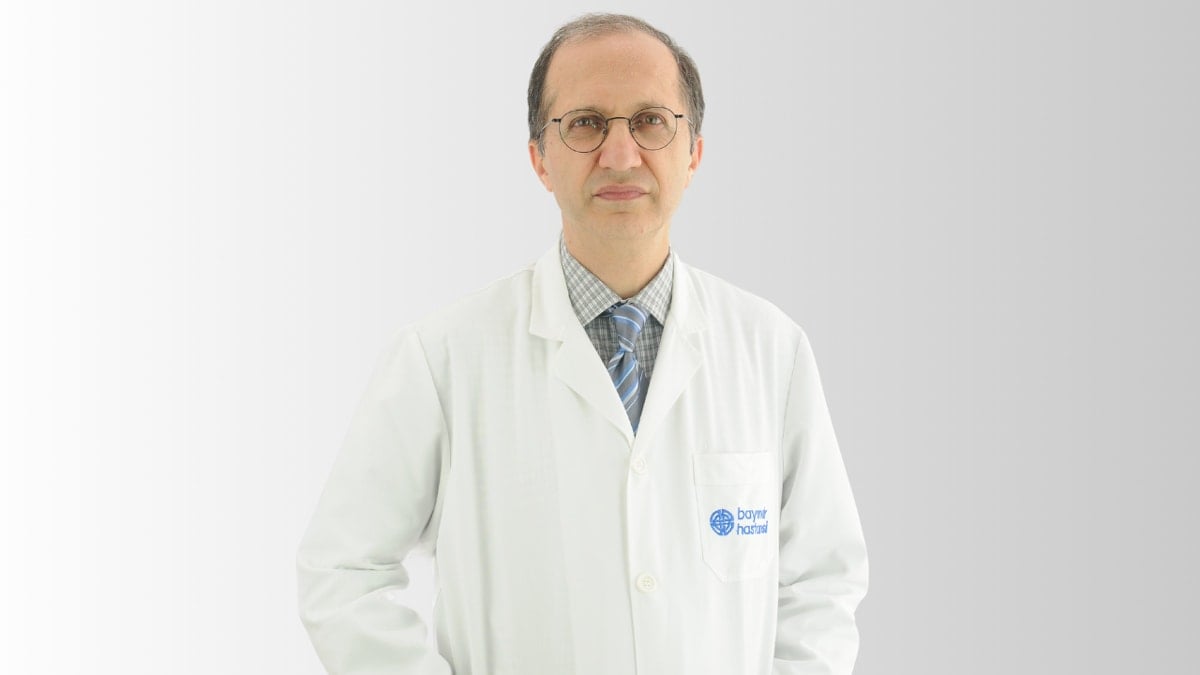Back pain in your 50s may be a sign of prostate cancer

Prostate cancer develops from the uncontrolled proliferation of cells in the prostate gland. It is the second most common cancer in men, after lung cancer. Urology Specialist Prof. Dr. İzak Dalva emphasized that prostate cancer, which progresses insidiously, is particularly common in men over the age of 50, and shared vital information on the subject, emphasizing the importance of raising awareness about the disease, early diagnosis, and healthy lifestyle habits.

It is seen in one in every eight men.
According to 2022 data, 1.47 million people worldwide have been diagnosed with prostate cancer. One in every 8-10 men will develop prostate cancer throughout their lifetime. The disease is particularly common in men over 50 and may not present symptoms in its early stages. Therefore, regular checkups and healthy lifestyle habits are vital for reducing the risk of prostate cancer and ensuring early diagnosis.
Factors that increase risk
GENETIC
Men with a family history of prostate cancer are at higher risk; if a father or sibling had prostate cancer before age 60, or if prostate cancer has been detected in several generations, the risk increases. Additionally, gene mutations such as BRCA1 and BRCA2 can increase the risk of aggressive prostate cancer.
OBESITY DIABETES
Diabetes, obesity, male pattern baldness and low ejaculation frequency are also among the risk factors.

Vitamin D Deficiency
Vitamin D deficiency also increases the risk of prostate cancer. Therefore, regular testing should be performed and, if necessary, supplementation should be taken with a doctor's recommendation.
ADVANCED AGE
Prostate cancer is particularly common in men over the age of 50. Approximately 60 percent of patients are 65 or older. It's rare in younger men, but prostate cancer can be more aggressive in those under 50.
MEN'S HEALTHWhat precautions can be taken?
To protect yourself from prostate cancer, you should eat a healthy diet, exercise regularly, manage your weight, manage diabetes, and limit alcohol and fatty foods. Milk and dairy products should be limited, meats should be limited, and antioxidant-rich foods like pomegranates, green tea, broccoli, tomatoes, and fresh fruits and vegetables should be consumed abundantly.

Diagnosis cannot be made with a blood test alone.
The PSA (Prostate-Specific Antigen) test is a basic blood test used in prostate cancer screening. Risk is determined by the PSA level in the blood, but the PSA test alone is not diagnostic. A definitive diagnosis is made through a rectal examination and, in cases of elevated PSA, a transrectal ultrasound accompanied by MRI findings and a fusion needle biopsy.
Who should have a PSA test at an early age?
The risk of prostate cancer is approximately 15 percent for people with a PSA level between 2.5 and 4 ng/ml, and 30 percent for those with a level between 4 and 10 ng/ml. PSA testing may be recommended starting at age 50, or earlier for men in the risk group. If there is a family history of prostate cancer, testing should be performed starting at age 40.
THE IMPORTANCE OF EARLY DIAGNOSISEarly diagnosis increases treatment success. Patients diagnosed with localized prostate cancer, meaning it hasn't spread to other parts of the body, have a higher chance of cure and a longer lifespan. Approximately 80 percent of these cases can be managed. In advanced stages, the chance of cure decreases. Therefore, regular checkups and understanding risk factors are crucial.
DO NOT POSTPONE THE CHECK!Men, especially those over the age of 45-50, can neglect prostate checkups. This can lead to prostate cancer being diagnosed late in its early stages, as the disease is often asymptomatic. In later stages, the tumor's pressure on the prostate tissue can cause difficulty urinating, frequent urination, bleeding during urination, difficulty with erection, and pain. Additionally, symptoms such as lower back, hip, and back pain, fatigue, and anemia should raise suspicion. If these symptoms are present, it's crucial to consult a doctor without delay.
SÖZCÜ





